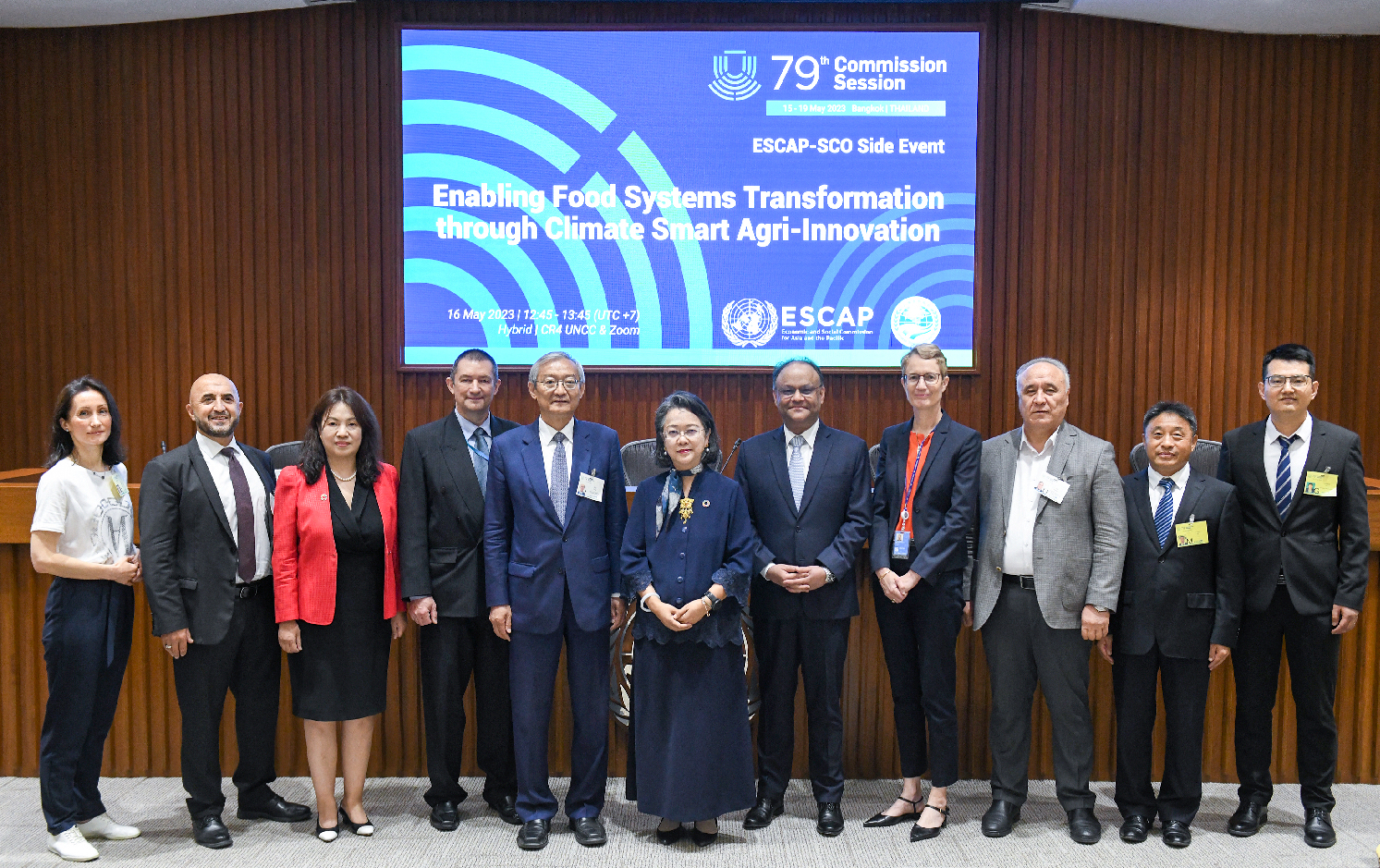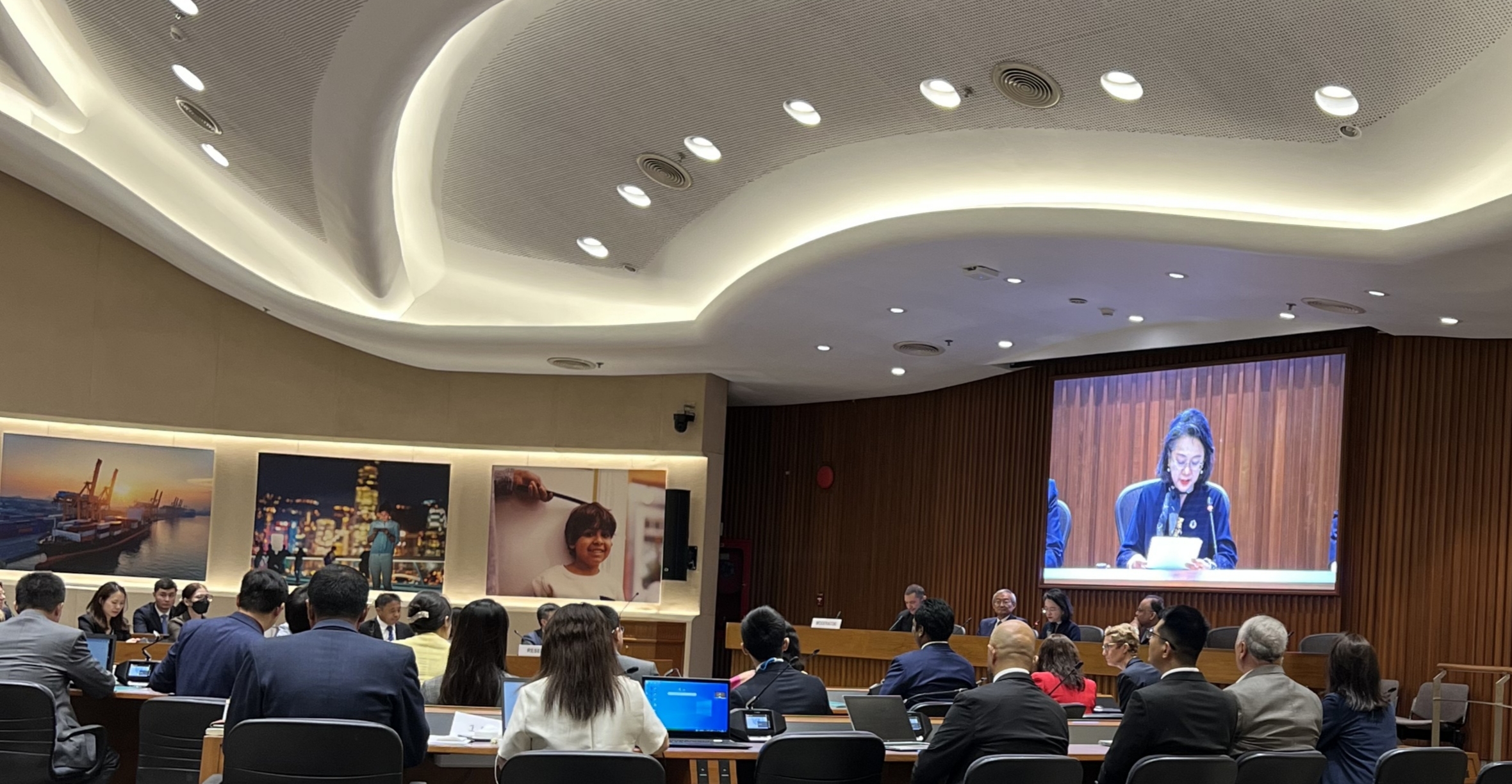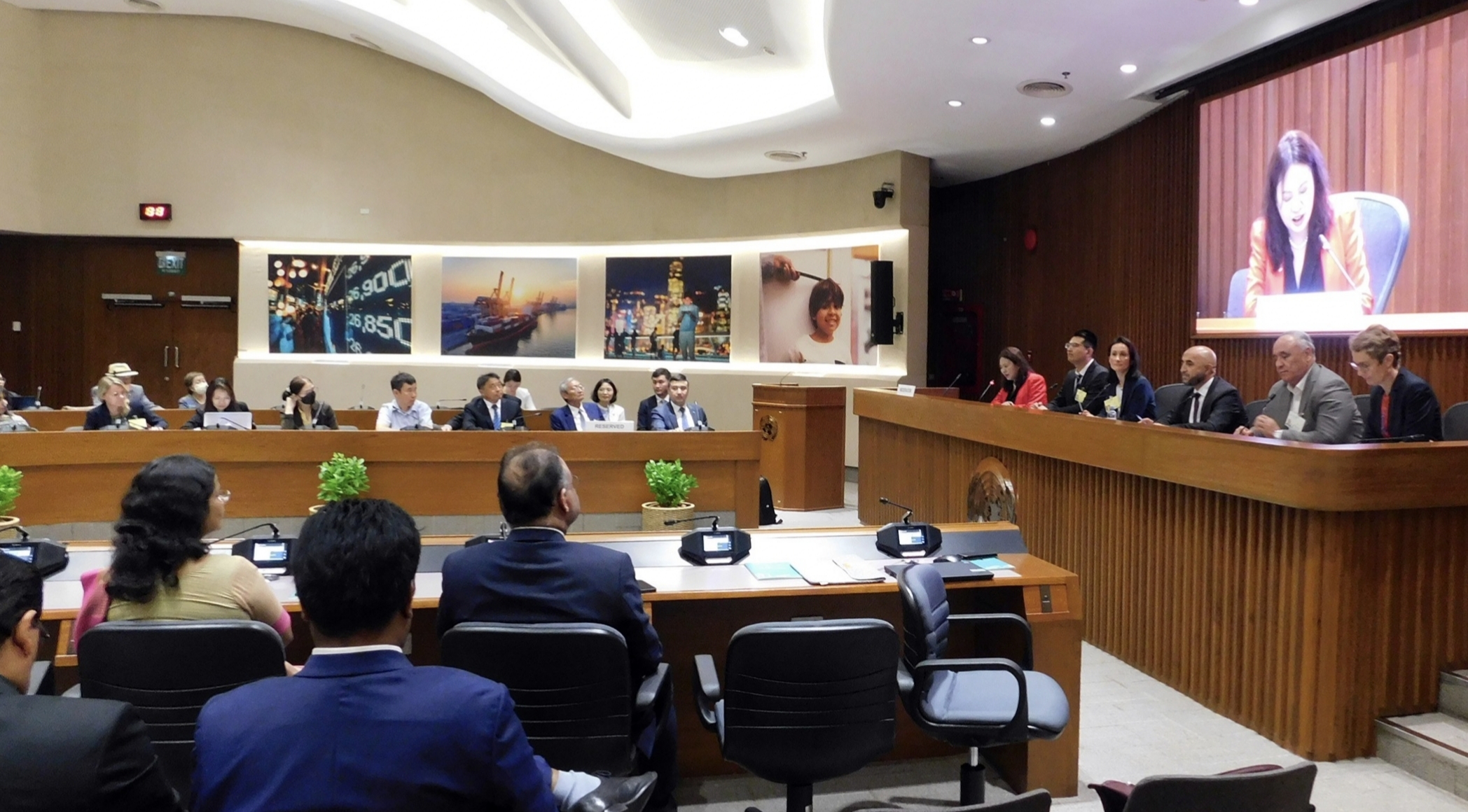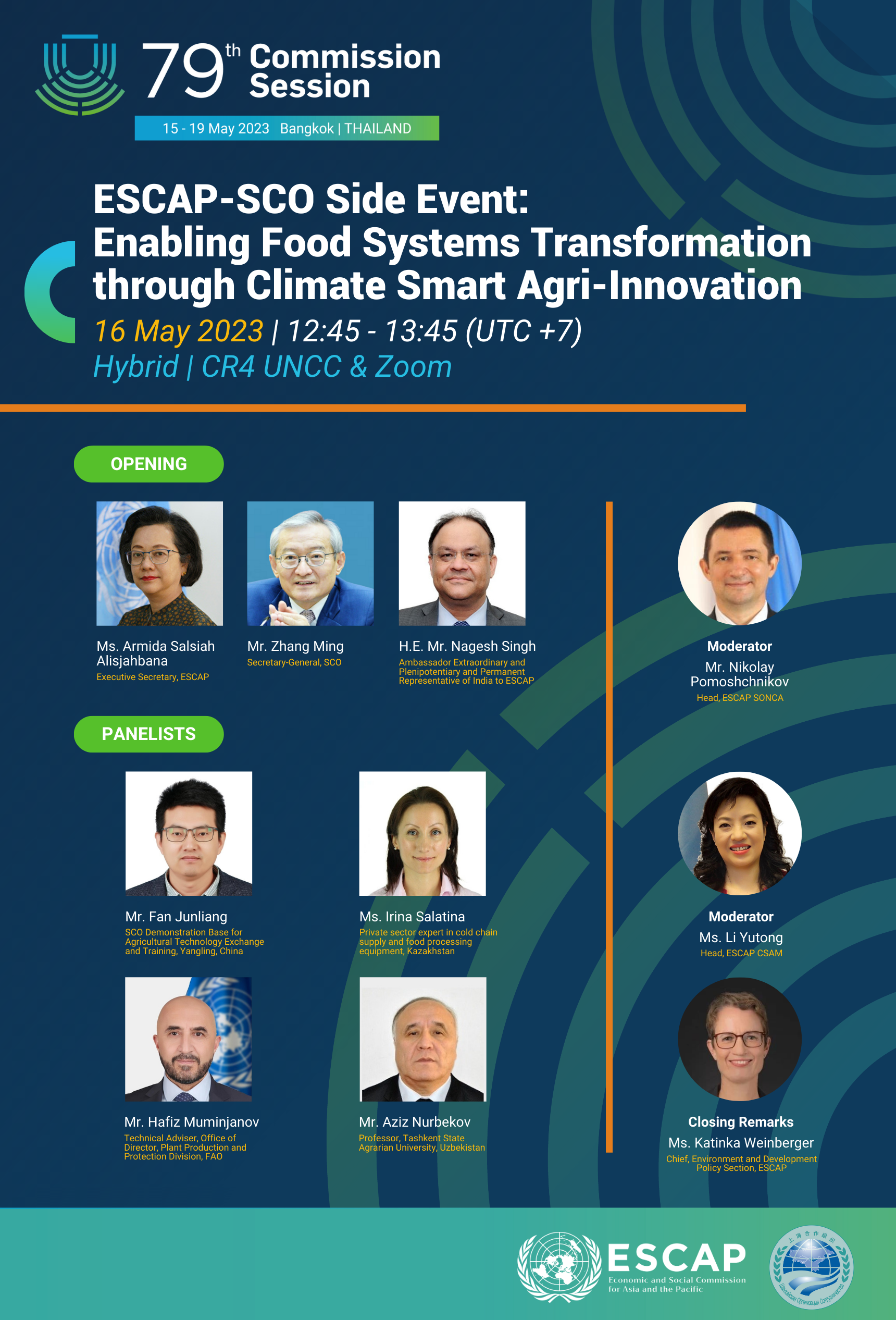ESCAP and SCO Underscore Role of Climate-Smart Agri-Innovation in Transforming Food Systems
Video Meeting Documents

As member States of the United Nations Economic and Social Commission for Asia and the Pacific (ESCAP) gather in Bangkok this week at the Seventy-ninth Session of the Commission to discuss regional cooperation to accelerate climate action, ESCAP and the Shanghai Cooperation Organization (SCO) joined hands to put the spotlight on the role of climate smart agri-innovation in transforming food systems.
An ESCAP-SCO Side Event of the Commission Session on the theme ‘Enabling Food Systems Transformation through Climate Smart Agri-Innovation’ was co-organized in hybrid format by both partners at the United Nations Conference Centre as well as online today. It marked another instance of close collaboration between ESCAP and SCO under a Memorandum of Understanding updated and signed between both parties in 2022. The gathering highlighted the importance of innovation for sustainable and climate smart agricultural development in order to achieve the Sustainable Development Goals and showcased several new or improved approaches and technologies from the Asia-Pacific region in general and Member States of the SCO in particular.

Opening the event, Dr. Armida Salsiah Alisjahbana, Executive Secretary of ESCAP, recounted the serious implications of climate change on food security in the region and said “the impacts will be significant on the livelihoods of the most vulnerable rural communities including smallholders, women farm workers and underserved rural youth who are already among those being left furthest behind.”
Speaking on the occasion, Mr. Zhang Ming, SCO Secretary-General, noted the importance of sustainable development of food systems in the context of climate change for the region and the world, and said “We also hope that today’s event will reaffirm the importance of multilateral cooperation and innovation in achieving the Sustainable Development Goals”.
Representing India as the current Chair of SCO, Mr. Nagesh Singh, Ambassador Extraordinary and Plenipotentiary and Permanent Representative of India to ESCAP, pointed out that no country is immune to the threat of climate change and expressed “It is important for the SCO membership to promote agri-innovation that can address the challenges posed by climate change”.
During a Panel Discussion on ‘Innovative Approaches and Technologies for Climate Smart Agriculture’, an enriching array of innovations and good practices in agriculture, supply chains and livestock management were presented by leading domain experts including Dr. Junliang Fan from the SCO Demonstration Base for Agricultural Technology Exchange and Training / Northwest Agriculture and Forestry University, Yangling, China; Ms. Irina Salatina, private sector expert from Kazakhstan; Dr. Hafiz Muminjanov from the Food and Agriculture Organization of the United Nations; and Dr. Aziz Nurbekov from Tashkent State Agrarian University, Uzbekistan.

The event was moderated by Mr. Nikolay Pomoshchnikov, Head of ESCAP’s Sub-regional Office for North and Central Asia, and Dr. Yutong Li, Head of ESCAP’s Centre for Sustainable Agricultural Mechanization, while Dr. Katinka Weinberger, Chief of ESCAP’s Environment and Development Policy Section, provided closing remarks.
In the follow-up of the Food Systems Summit convened by the United Nations Secretary-General in 2021, the event informed and supported countries' implementation of the national food system transformation pathways, especially in the action areas of advancing equitable livelihoods, building resilience, and accelerating the Means of Implementation. It advanced the understanding of policymakers and practitioners working in the areas of agriculture and climate change adaptation and mitigation on the need and opportunities for promoting agri-innovation including through financing, capacity development, policy support, multi-stakeholder partnerships, and regional and sub-regional cooperation.

